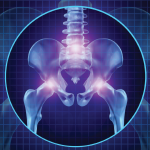 The practice of medicine often involves a delicate balance: being sure not to underdiagnose or undertreat disease while avoiding low-value care that may harm patients, waste resources and overtax our already overburdened healthcare system. Rachelle Buchbinder, AO, MBBS (Hons), MSc, PhD, FRACP, FAHMS, head of the Musculoskeletal Health & Sustainable Health Care Units, School of Public Health & Preventive Medicine, Monash University, Malvern, Victoria, Australia, has focused her research and advocacy work on these subjects.
The practice of medicine often involves a delicate balance: being sure not to underdiagnose or undertreat disease while avoiding low-value care that may harm patients, waste resources and overtax our already overburdened healthcare system. Rachelle Buchbinder, AO, MBBS (Hons), MSc, PhD, FRACP, FAHMS, head of the Musculoskeletal Health & Sustainable Health Care Units, School of Public Health & Preventive Medicine, Monash University, Malvern, Victoria, Australia, has focused her research and advocacy work on these subjects.
Dr. Buchbinder is a practicing rheumatologist and serves as the coordinating editor for the Cochrane Musculoskeletal Back and Neck Group. She is the chair of the National Health and Medical Research Council (NHMRC) Australia and New Zealand Musculoskeletal (ANZMUSC) Clinical Trials Network Centre of Research Excellence. She also coauthored Hippocrasy: How Doctors Are Betraying Their Oath with Ian Harris, AM, MBBS, MMed (Clin Epi), MSc (Hlth Data Sc), PhD, professor of orthopedic surgery, University of New South Wales, Sydney.
The Rheumatologist (TR) interviewed Dr. Buchbinder on her research and its future implications for the practice of rheumatology.
TR: How did you first become interested in the topics of misdiagnosis, overdiagnosis and reducing waste in medicine?
Dr. Buchbinder: Let me first note that misdiagnosis is a wrong diagnosis, whereas overdiagnosis is a technically correct diagnosis that does not result in any benefit to the patient. My interest is in overmedicalization, overdiagnosis, overtreatment and, more broadly, low-value care and waste in medicine. My passion for these topics stems from what I have seen in everyday rheumatology practice. Much of the problem originates from a lack of science literacy (e.g., clinical epidemiology) and a tendency to overestimate the benefits and underestimate the harms of what we do. For example, [estimates indicate] about a third of medical care is of no benefit and another 10% is harmful.1
The other way I came to this area was by performing randomized controlled trials of treatments that were already in routine care but hadn’t been properly evaluated, as well as systematic reviews for common treatments. I thought—naively—that I would be proving that many of these treatments worked. I was surprised to learn [that] in many instances they did not. This list of treatments includes vertebroplasty for osteoporotic spinal fractures, shock wave therapy for heel and elbow pain, subacromial decompression for shoulder pain and medicinal cannabis for chronic pain, to name a few.2-6
Fundamentally, many things contribute to the problem. At a systems level, the issue is that medical care is based on a business model that doesn’t fit with improving health; rather, it prioritizes the giving of care over health. We often are treating, rather than preventing, illness. There are many perverse incentives that reinforce wrong care and discourage the right type of care from being given. New tests and treatments are introduced into practice before being properly evaluated. Technological advances have increased sensitivity of imaging [so it] can detect miniscule findings, which may substantially increase the risk of overdiagnosis. In addition, the media has a tendency to focus on miracle cures and to fall prey to hype. Patients often have expectations that may be exaggerated compared to what we can actually deliver.


